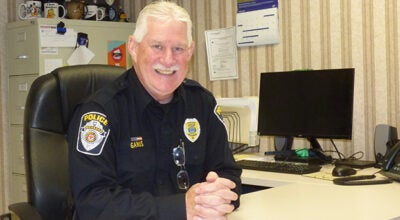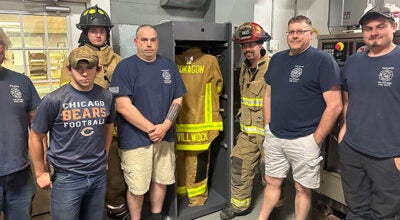Preparing for a winter storm
Published 7:12 pm Monday, December 23, 2013
With winter weather well underway, it is more important than ever to be prepared for emergencies. The Michigan Committee for Severe Weather Awareness has prepared lists of tips to help patrons remain safe this season.
At home:
• Keep handy a battery-powered flashlight, National Oceanic and Atmospheric Administration (NOAA) weather radio and portable radio, extra food (canned or dried food is best), can opener, and bottled water (at least 3 gallons per person). Fully charge all mobile and home telephones.
· Make sure each member of the household has a warm coat, gloves, hat and water-resistant boots. Ensure extra blankets and heavy clothes are available.
• Keep on hand items for infant, elderly or disabled family members.
• Keep on hand items for your pets. Animals feel the effects of wind chill. Be sure to have suitable shelter with food and water.
• Be aware of potential fire and carbon monoxide hazards if you plan to use an emergency heating source such as a fireplace, wood stove or space heater. (See Heat Sources Safety page later in this packet for more information.)
Outside:
• Avoid overexertion, such as shoveling heavy snow, pushing a car, or walking in deep snow. Sweating could lead to chill and hypothermia, and abnormally low body temperatures. Cold weather also puts extra strain on the heart, so the elderly and those with heart conditions should be especially cautious when out in the cold.
• Walk carefully on snowy, icy sidewalks.
• Wear loose-fitting, lightweight warm clothing in layers, with a waterproof outer layer. Wear a wool hat and mittens.
• Keep your clothes dry. Change wet socks and clothing quickly to prevent loss of body heat.
• Understand the hazards of wind chill. As wind speed increases, heat is carried away from a person’s body more rapidly which could lead to severe hypothermia.
Automotive
preparedness:
• Be sure the vehicle is winterized by late fall. This includes having the proper mix of antifreeze and water in the cooling system, topping off the windshield washing solution, and checking the tire treads. Have a mechanic check the belts, hoses, tires, battery, and coolant.
· Keep the fel tank near full, as low fuel levels can cause condensation to form, degrading fuel quality and possibly causing the fuel line to freeze. Additionally, gas stations may be closed during a severe winter storm, so it is wise to fill up if storm warnings are being broadcasted.
· Your car should always be equipped with emergency supplies. Keep the following items stored in a portable container:
• A small battery powered radio (AM is sufficient) and extra batteries
• Flashlight with extra batteries
• Cellular phone/Phone book and phone list
• Windshield scraper
• Jumper cables
• Fire extinguisher
• Maps/GPS Unit
• Blanket and extra clothes
• Flares
• Bottled water and non-perishable, high energy foods (granola bars, canned nuts, raisins, hard candy, trail mix, peanut butter and crackers)
• First aid kit
• Tire repair kit and pump
• Tow chain or rope and Shovel
• De-icer and extra antifreeze
• “Call Police” or other “Help” sign






